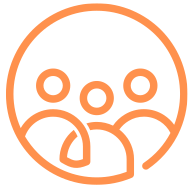How Dei Programs Promote Cross-Cultural Understanding Within Global Teams
In today's interconnected world, fostering cross-cultural understanding within global teams is more crucial than ever. This article delves into how Diversity, Equity, and Inclusion (DEI) programs can effectively bridge cultural gaps and enhance team dynamics. Drawing on insights from experts in the field, we explore practical strategies that organizations can implement to create more inclusive and harmonious global work environments.
- Microtraining Enhances Inclusion and Team Synergy
- Open Dialogue Builds Trust Across Cultures
- Personal Stories Foster Global Team Empathy
- Virtual Exchanges Deepen Cultural Awareness
Microtraining Enhances Inclusion and Team Synergy
Leveraging DEI microtraining as a subtle nudging tool has markedly enhanced workplace inclusion and team synergy.
By delivering concise, targeted training, team members are becoming more adept at recognizing and respecting various communication styles. This acknowledgment leads to a richer, more inclusive team dialogue.
Furthermore, micro-sessions aimed at nurturing psychological safety are quietly revolutionizing the workplace; they foster an environment where employees feel secure in voicing innovative thoughts, free from the fear of negative repercussions. Such a culture not only liberates creativity but also lays the foundation for robust problem-solving.
Meanwhile, these trainings have proven invaluable for global teams by providing the necessary insights to manage cultural disparities, thus boosting international cooperation and efficiency. Collectively, these small yet impactful educational interactions contribute to creating a workplace where inclusion and belonging are the destination.

Open Dialogue Builds Trust Across Cultures
Diversity, equity, and inclusion are a set of outcomes. To achieve a diverse workforce, equitable processes and systems, and an inclusive workplace culture, we make a series of decisions. We come to those decisions through communications.
Helping managers and employees understand cultural norms across regions removes barriers to miscommunication and increases workplace safety for collaborations. Providing spaces for people to openly talk about how they work best and being curious about what others need to work at their best is key.
These conversations build trust and lead to decisions that result in a productive, innovative, and inspired diverse, equitable, and inclusive workplace.

Personal Stories Foster Global Team Empathy
One way we've seen DEI programs work brilliantly across global remote teams is by embedding "origin stories" into onboarding and team rituals--not just company values, but personal ones. Every new hire shares a brief story about where they're from, what shaped their worldview, and one cultural norm from their region they wish more people understood. It sounds simple, but it's powerful.
We started this during a global team offsite and kept it alive in remote standups. It broke down stereotypes fast. Suddenly, someone from Brazil wasn't "the LATAM rep," they were the guy whose mom ran a bakery that never closed during a flood. It gave texture to Slack threads, made debates more respectful, and turned timezone friction into curiosity instead of annoyance.
DEI can feel abstract--but grounding it in personal, lived stories creates empathy on a human level. That's where real cross-cultural collaboration begins.

Virtual Exchanges Deepen Cultural Awareness
DEI (Diversity, Equity, and Inclusion) programs are integral in fostering an inclusive workplace culture, especially in global or remote teams where diverse cultures and backgrounds intersect. By implementing comprehensive DEI training and cultural competence initiatives, organizations can help team members appreciate and value diverse perspectives. This understanding is critical in global teams where cultural nuances influence communication styles, decision-making processes, and conflict resolution techniques.
One specific example of DEI in action is virtual exchange programs that connect team members from different parts of the world through shared projects or mentorship programs. These exchanges not only deepen individual cultural awareness but also build empathy among colleagues by showing the practical and personal implications of cultural differences on work processes. Through regular interaction and collaborative projects, team members learn to navigate and appreciate the cultural intricacies that each person brings to the table. This not only enhances teamwork but also drives innovative problem-solving by integrating diverse viewpoints. By investing in such DEI initiatives, organizations can significantly improve cross-cultural understanding, leading to more effective and harmonious collaboration.


